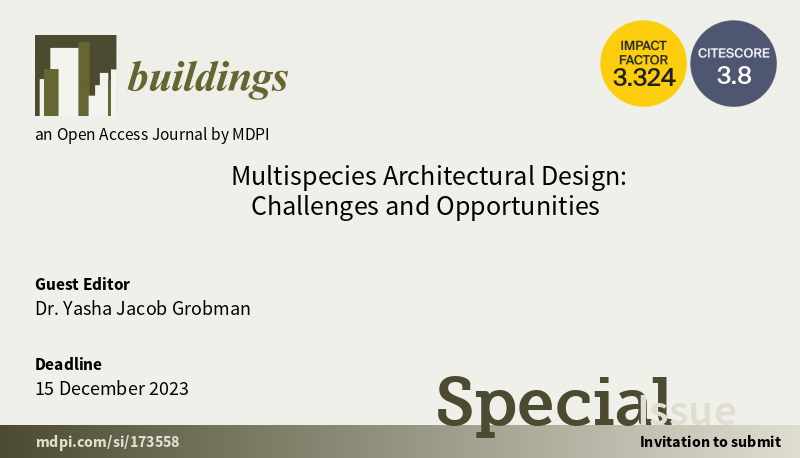
Special issue on multispecies design
We are delighted to share that Yasha Grobman has been given the opportunity to guest edit a Special Issue titled "Multispecies Architectural Design: Challenges and Opportunities." This special issue will be published in the Buildings journal (https://www.mdpi.com/journal/buildings).
The special issue aims to explore the integration of multiple species into the design and construction processes, focusing on the benefits and challenges it presents. We encourage submissions that investigate innovative approaches, case studies, theoretical frameworks, and practical applications related to multi-species design.
The deadline for manuscript submission is 15 December 2023. Please note that all submissions will undergo a rigorous peer-review process to ensure the publication of high-quality research.
More details through the special issue webpage: URL: https://www.mdpi.com/journal/buildings/special_issues/EH56LK92Z4
Abstract:
The rapid expansion of the global human population has resulted in a significant decline in biodiversity. Conventional environmental design approaches have proven insufficient in tackling this pressing issue, necessitating innovative research at the building scale. Multispecies design, which acknowledges non-human species as active stakeholders, represents a paradigm shift away from anthropocentric architectural design.
To effectively design for multispecies environments, interdisciplinary collaboration between architecture, ecology, and animal geography is crucial. This collaboration should aim to generate new knowledge, design methods, and tools that enable the translation of non-human species' needs into architectural form.
This Special Issue highlights the urgency to address declining biodiversity through multispecies design and investigates the challenges and opportunities associated with integrating ecological knowledge into architectural practice. By embracing the needs of non-human species, built environments have the potential to foster biodiversity conservation and facilitate a more harmonious coexistence between humans and the natural world.



